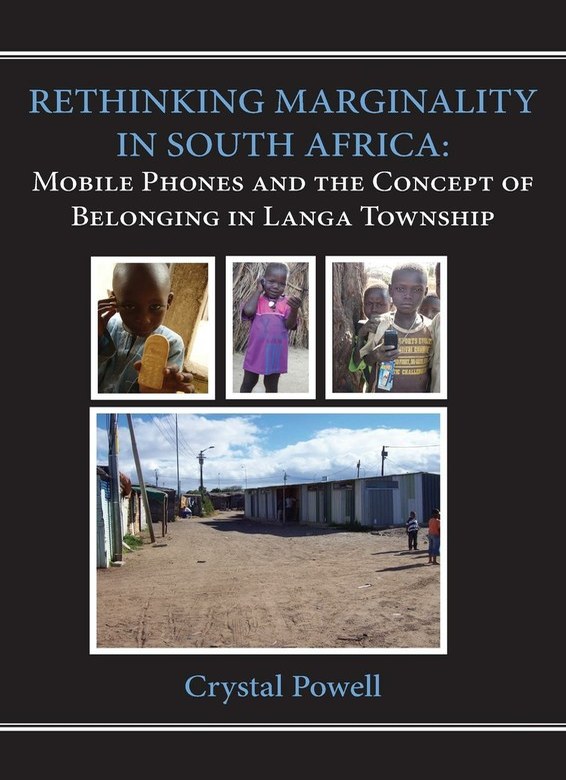written by Crystal Powell
Mobile Phones and the Concept of Belonging in Langa Township
What does it mean to be marginal? For residents of Cape Town’s Langa Township, being considered marginal is subject to a host of social, physical and sometimes materialistic qualifications – not least of which is owning a mobile phone. Through various presentations of unique aspects of township life revealed through ethnographic snapshots, this book reveals the complex realities of marginalization experienced by some residents in Langa Township, located in Cape Town, South Africa. Mobile phones have been embraced and accommodated by both local South Africans and African immigrant residents living and working in Langa. Among other things, the technology has become a way of challenging (real and imagined) marginalities within the township in particular and South Africa in general. The book provides empirical data on the role of technology in regards to migration and notions of belonging; specifically the ways that technology has mitigated distance for residents, provided opportunities for development, facilitated the negotiation of various marginalities, and offered new ways of belonging for Langa residents.
| ISBN | 9789956792023 |
| Pages | 286 |
| Dimensions | 229 x 152mm |
| Illustrations | B/W Illustrations |
| Published | 2014 |
| Publisher | Langaa RPCIG, Cameroon |
| Format | Paperback |





3 comments
“This is a fascinating account of the lived experience of marginalization and belonging among south-south migrants in Cape Town, South African. Focusing upon a range of consumption practices including the use of new media and mobile phones, Powell examines how social media is used for rights-based claims and action. Giving voice to everyday migrants, Powell provides a welcome corrective to some of the global political activism that currently dominates the mobile and social media for social change literature.”
Heather Horst, Director of the Digital Ethnography Research Centre, RMIT University Australia
“Powell provides a rich understanding of the role of new ICTs in the social evolution and transition towards a fully democratic and participatory society in South Africa, one of the most unequal and violent societies worldwide. Not trapped by simple answers, her insights are based on detailed ethnographic experience and cautious conclusions. This is a convincing and well-founded study.”
Professor Dr. Hans Peter Hahn, Institut für Ethnologie, Goethe-Universität Frankfurt, Germany
“Beyond providing an empirically informed description of what mobile phones can and cannot do, Powell challenges stereotypical representations of marginality in the townships of South Africa. This book is valuable in recognising that the area is primarily one of migrants, both domestic and international, and in trying to break down racialised categories which tend to overly define South African scholarship. The book offers a good blend of literature on xenophobia and migration in South Africa with global debates about the use of mobile phones in generating new socialities.”
Professor Loren Landau, South African Research Chair for Mobility & the Politics of Difference, African Centre for Migration & Society, University of the Witwatersrand